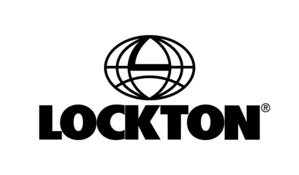KANSAS CITY, Mo., Oct. 20, 2016 /PRNewswire/ -- About one in six Americans get sick from a foodborne illness every year, according to the Centers for Disease Control (CDC). Lockton wants to help food transporters prevent illness and protect their reputation by following new rules from the U.S. Food and Drug Administration's (FDA) Food Safety Modernization Act (FSMA).
With 128,000 foodborne-related hospitalizations in the United States every year, Lockton's Senior Loss Consultant Mark Oldham's new report, "Good Enough to Eat," helps food transporters understand the new FSMA rules to minimize the spread of foodborne illnesses.
"Any company engaged in the transportation of food should develop standardized policies, procedures and training to ensure food safety and compliance," advised Oldham. "The act expands on risk-based controls to decrease the likelihood of food becoming unsafe while in transit."
Most companies must be in compliance by April 2017, but there are a few exceptions. Small businesses other than motor carriers who are not also shippers or receivers with less than 500 employees have until April 2018 to comply. Motor carriers that have less than $27.5 M in annual receipts also have until April 2018 to comply.
To help companies comply, Oldham outline five key areas of the FSMA rules.
- Requirements –What shippers, receivers, loaders and carriers need to know for effective food controls.
- Responsibilities – The specific responsibilities of shippers, receivers, loaders and carriers for compliance.
- Training – Carriers are required under a food contract for food safety in transit to train engaged personnel.
- Records – Carriers, shippers, loaders and receivers must maintain records of any written agreements associated with FSMA requirements for 12 months beyond termination of those agreements.
- Waivers – The FDA can wave requirements under FSMA if it is determined through a petition that the waiver will not result in in unsafe food transportation.
"These new requirements expand regulation beyond the US Department of Agriculture's (USDA) Hazard Analysis and Critical Control Point program and expands on risk-based controls," said Oldham.
These rules apply to food transportation beyond those transshipped through the United States, imported from future exports or regulated by the USDA for inspection of meat, poultry and egg products. Read Oldham's white paper "Good Enough to Eat," for more information on implementing FSMA.
About Lockton
More than 6,000 professionals at Lockton provide 50,000 clients around the world with risk management, insurance, employee benefits consulting, and retirement services that improve their businesses. From its founding in 1966 in Kansas City, Missouri, Lockton has attracted entrepreneurial professionals who have driven its growth to become the largest privately held, independent insurance broker in the world and 9th largest overall. For eight consecutive years, Business Insurance magazine has recognized Lockton as a "Best Place to Work in Insurance." To see the latest insights from Lockton's experts, check Lockton Market Update.
CONTACT:
Elizabeth Ferguson
[email protected]
816-960-9459
Logo - http://photos.prnewswire.com/prnh/20090415/CG99351LOGO
SOURCE Lockton
Related Links
WANT YOUR COMPANY'S NEWS FEATURED ON PRNEWSWIRE.COM?
Newsrooms &
Influencers
Digital Media
Outlets
Journalists
Opted In





Share this article